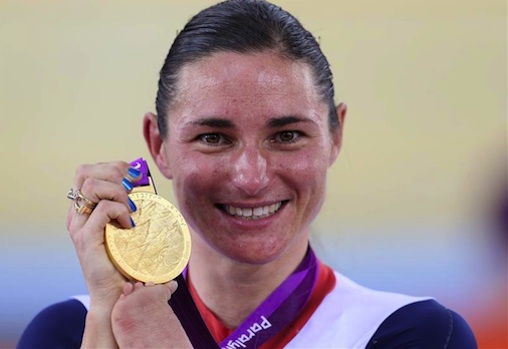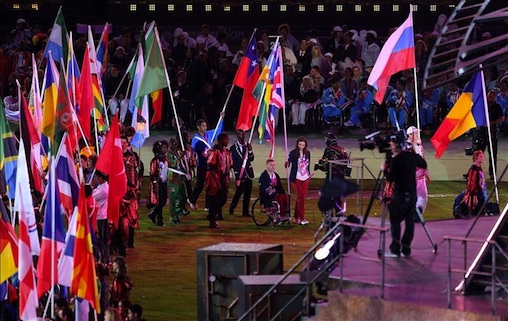BT Paralympic World Cup
Pistorius’ Olympic ambitions should not devalue his Paralympic excellence

AthleticsBT Paralympic World Cup

OSCAR Pistorius set a new world record in Manchester last weekend, an achievement greeted with delight – two days later the ‘blade runner’ went more than a second quicker, a performance met with disappointment and indifference.
BLADE RUNNER: Oscar Pistorius is closing in on becoming the first amputee sprinter to compete at the IAAF World Championships and/or Olympics
It’s the complex nature of the IPC disability categories and world records, coupled with the BT Paralympic World Cup’s aims of combining certain categories to enhance spectator enjoyment, which permitted Pistorius to rewrite the record books one day in 47.27 before barely catching the eye in 46.19 just 48 hours later.
In truth, the 24-year-old ought to have broken the T42/44 world record (that which tumbled on Sunday) a lot sooner but the fact that the Paralympic World Cup is in May and that it’s in Manchester has meant weather has frequently got the better of him in his six previous appearances.
Not that the world record reverberated. In bidding to become the first amputee sprinter to compete at the IAAF World Championships and/or Olympics, Pistorius is effectively leading a double life – when he competes over 400m in Paralympic circles he’s hare that will never be caught, in able-bodied competition he’s taking the tortoise’s approach.
Pistorius’ hopes of taking part in August’s World Championships are ever improving as spring turns to summer but it’s hard to ignore the argument that his Paralympic performances, even record-breaking ones, are devalued when viewed purely in relation to his Olympic ambitions.
For the simple reason that the watching world relishes the idea of seeing the fastest man on no legs competing against, even beating, the fastest man on two, Pistorius is the marquee name in Paralympic sport.
And when Pistorius achieved the B standard for both this summer’s World Championships and next year’s Olympics, that prospect edged ever closer.
To his credit, Pistorius is ardent in his defence of the Paralympics and will always maintain that the Olympics has no over-bearing superiority in his mind – he purely states that he wants to be as fast as he possibly can be.
It should also be noted however that such is his affable nature, not to forget that he is the poster-boy for the Paralympic movement, few dare pose to him the hypothetical ultimatum.
But when Pistorius lines up in a 400m race, it’s probably not Paralympic records in his or anyone else’s mind, rather it’s the Olympic A standard, and that can be damaging to disability sport.
For Pistorius was not the only sportsman or woman competing in Manchester last weekend and the majority do not have Olympic avenues open to them.
And this is not the first time that a disabled sportsperson’s pursuit of the Olympics has unintentionally threatened to marginalise to Paralympics.
Cyclist Sarah Storey almost helped the British quartet to the team pursuit world record earlier this year while South African swimmer Natalie du Toit more than holds her own in able-bodied open water swimming – both have myriad Paralympic medals to their name but never had they been afforded so many column inches.
But the Paralympics should not be seen as a springboard to the Olympics, as a reserve league for the supposed main event or as sport of less quality.
Speak to enough Paralympic athletes and you will find that the majority seek respect for excelling in their sport and striving to be the very best they can be – which incidentally does not equate to being an Olympic also-ran.
In all likelihood Pistorius will reach the World Championships, and the Olympics next year, but those who ignore or forget he will return to London a month later are missing the point entirely.
© 2011



































